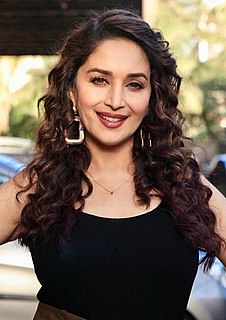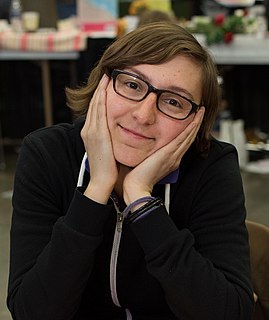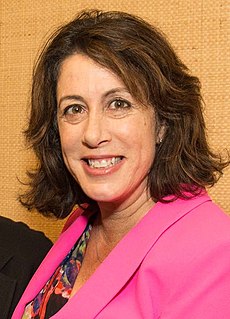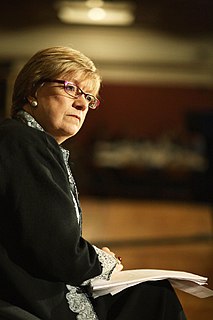A Quote by Judith Butler
I am much more open about categories of gender, and my feminism has been about women's safety from violence, increased literacy, decreased poverty and more equality.
Related Quotes
Feminism involves so much more than gender equality and it involves so much more than gender. Feminism must involve consciousness of capitalism (I mean the feminism that I relate to, and there are multiple feminisms, right). So it has to involve a consciousness of capitalism and racism and colonialism and post-colonialities, and ability and more genders than we can even imagine and more sexualities than we ever thought we could name.
All year there have been these cover stories that the women's movement is dead and about the death of feminism and the post-feminist generation of young women who don't identify with feminism - and then we have the biggest march ever of women in Washington. More people than had ever marched for anything - not only more women, but more people.
Countries with more gender equality have better economic growth. Companies with more women leaders perform better. Peace agreements that include women are more durable. Parliaments with more women enact more legislation on key social issues such as health, education, anti-discrimination and child support. The evidence is clear: equality for women means progress for all.
I've been a staunch advocate of women's empowerment, and I've worked hard throughout my career to advance the cause. It is heartening to see that gender equality is really becoming more of a reality. There is still much more to be done, and I'm confident that, by working together, we can empower women worldwide.
I've always thought about gender, as someone who has been categorically "gender nonconforming" for my entire life, I was forced to think about it, but obviously I became more conscious of it as a social issue as I've gotten older. And as I've met more folks who are genderqueer or trans, it's been really enlightening to hear their stories, and it got me thinking about my own gender history.
Maybe I'm a bad feminist, but I am deeply committed to the issues important to the feminist movement. I have strong opinions about misogyny, institutional sexism that consistently places women at a disadvantage, the inequity in pay, the cult of beauty and thinness, the repeated attacks on reproductive freedom, violence against women, and on and on. I am as committed to fighting fiercely for equality as I am committed to disrupting the notion that there is an essential feminism.
I think feminism has always been global. I think there's feminism everywhere throughout the world. I think, though, for Western feminism and for American feminism, it not so surprisingly continues to center Western feminism and American feminism. And I think the biggest hurdle American feminists have in terms of taking a more global approach is that too often when you hear American feminists talk about international feminism or women in other countries, it kind of goes along with this condescending point of view like we have to save the women of such-and-such country; we have to help them.








































